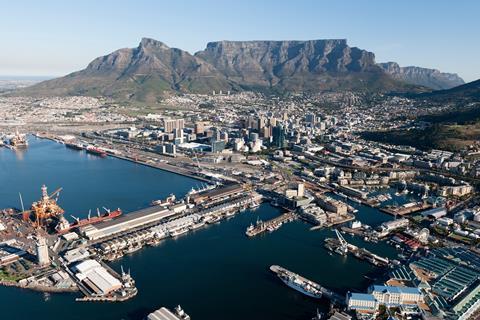Anger and frustration at the ongoing port issues has reached boiling point, according to Hortgro’s Jacques du Preez

South Africa still finds itself in a dire situation with ports across the country, according to Jacques du Preez, trade and markets at industry body Hortgro.
This is despite a number of meetings from an operational level to minister Pravin Gordhan, and the National Logistics Crisis Committee (NLCC) under the auspices of the president.
“The amount of anger and frustration has reached boiling point in all sectors and industries, especially at the grower level,” said Du Preez.
“Transnet (the country’s transport authority) presented many plans, but delivery and execution are lacking and it’s a case of too little too late.”
His comments come as South African exporters have been forced to move fruit over vast distances to meet shipping schedules.
Alternatives to container vessels are also sought, such as a move to specialised reefers. All these options are costly for an industry that has been through some tough years.
“Transnet is in such a financial mess that they are unable to repay loans and the treasury have stated they will not bail them out,” explained Du Preez in a newsletter to growers.
“Rumour has it that they will also run out of cash flow in February 2024. If they are unable to pay loans at the end of February, we are facing a complete disaster,” he said.
Du Preez said it was a scramble to try and put measures in place to rescue the deciduous season. “But it’s a case of putting band-aids over a gaping, gushing wound.”
However, he noted that for the first time, the door had been opened to private sector participation – albeit at ”a minute to midnight”.
Many industries and sectors are now, under the NLCC, exploring options and vehicles to fund equipment and expertise from the private sector and recoup the expenses from Transnet.
“But considering their financial position, how will they be able to do this?” Du Preez questioned. ”A lot (everything!) simply must change – from the bottom of the labour chain to the top management, to the equipment.
“The industry is pessimistic considering the plans and promises made by Transnet over the last year and looking at what transpired, our faith in them is rather depleted. We hope they prove us wrong.
“The most critical link now is the availability and operational ability of the Rubber-Tyred Gantries (RTGs),” he noted. ”The seven second-hand RTGs are en route from Los Angeles and are expected to be deployed in mid-December. This will hopefully bump up the throughput in the container terminal.”
At the Multi-Purpose Terminal in Cape Town things are looking better than last year with three mobile cranes available compared to one last year. There is also a two-berth operation compared with one last year.
“Performance at this terminal is not too bad, however, it services smaller vessels, and its capacity is much lower than the container terminal,” Du Preez added. ”The privately run terminal, FPT, is running well, but it has limited capacity.”



